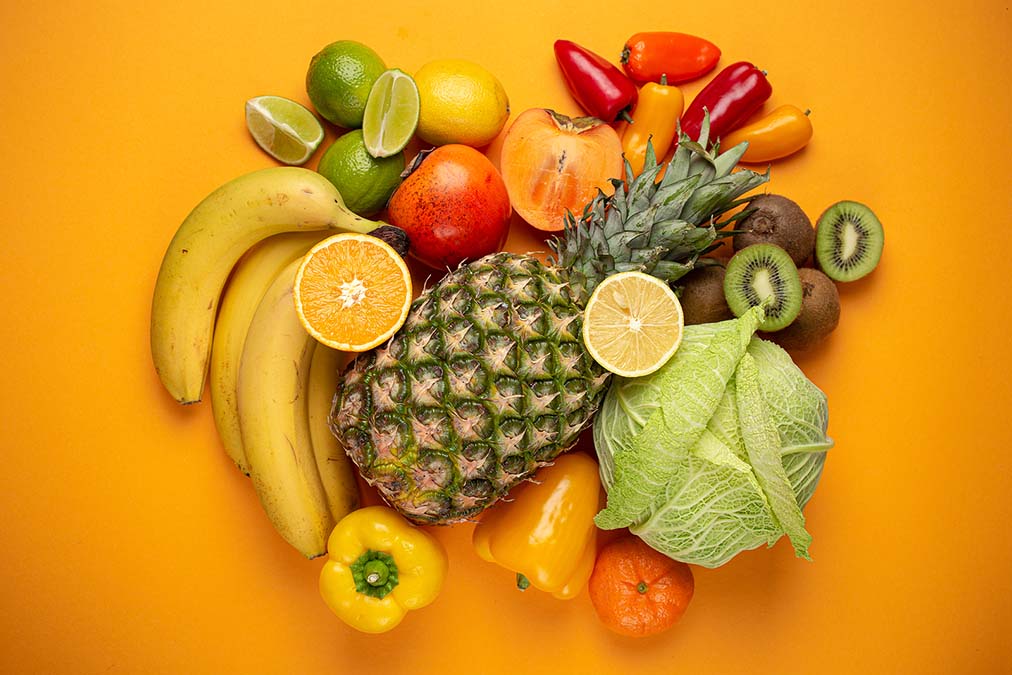
The World Health Organization (WHO) has declared high blood pressure to be the number one underlying cause of death in the world, and traditional medical systems offer dangerous medications as the only solution.
But new studies from the top universities in the world have proven that three specific vitamins are even more effective at preventing blood pressure-related deaths than prescription medications.
Science has discovered another good reason for you to eat your daily servings of fruits and vegetables. Antioxidants—those free-radical-annihilating, cancer-fighting, anti-aging do-gooders found mostly in plant foods—can also lower your blood pressure.
Three vitamins in particular (Vitamins A, C, and E) can fend off high blood pressure by keeping your arteries healthy, supple, and free of plaque buildup. Studies have shown that people who eat diets rich in vitamin C and other antioxidants tend to have lower blood pressure than their counterparts with antioxidant-poor diets. These antioxidant vitamins work in multiple individual and overlapping ways:
• Vitamins A, C, and E prevent LDL cholesterol (the bad form of cholesterol) from getting stuck to the walls of arteries. Thus, they prevent plaques that increase blood pressure by narrowing artery walls and hardening arteries.
• Supplementation with Vitamin C has been shown to help reduce the blood pressure-raising effects of peripheral artery disease (PAD). In this condition, free radicals in the bloodstream damage the delicate cells that line the arteries, which keeps them from expanding and contracting normally. When people with PAD exercise, their blood pressure increases to a higher level than what is ideal, due to stiffness in their blood vessels.
• Another blood pressure-lowering effect of Vitamin C is that it acts as a diuretic, encouraging your body to release excess fluids. Vitamin C is also an important component of collagen, which helps form the walls of your arteries and veins.
• Vitamins C and E prevent oxidative damage to nitric oxide, a signaling molecule that lowers blood pressure by telling blood vessels to expand. Vitamins C and E also stimulate your body to produce more nitric oxide.
• Vitamin E has been found to help post-menopausal women avoid having high blood pressure by keeping the artery walls supple.
• Low levels of Vitamin E are often found in people with metabolic syndrome, a combination of symptoms (including high blood pressure) that increase the risk of cardiovascular disease.
• Vitamin A prevents white blood cells from absorbing cholesterol and forming foam cells—dangerously enlarged cells that burrow into the artery wall, impede blood flow, and cause plaque formation.
On a cautionary note, if you supplement your diet with these vitamins, be aware that (since they are fat-soluble) they accumulate in the body and that excessively high levels can actually raise blood pressure.
Getting to the Source
Oranges are synonymous with Vitamin C to most people, but did you know that a lot of common foods such as red bell peppers, broccoli, kale, strawberries, and papaya provide more Vitamin C per serving than a medium orange?
For Vitamin E, almonds and sunflower seeds top the charts. Green vegetables, such as spinach, Swiss chard, and turnip and beet greens are also great sources of this heart-healthy vitamin.
The orange color of veggies like carrots and sweet potatoes is a sure giveaway that they contain large amounts of orange-pigmented Vitamin A. However, you can also get almost 100% of your daily allotment of Vitamin A with a generous helping of kale or mustard greens. You just can’t see the Vitamin A in these vegetables because of the stronger green pigment chlorophyll.
And if your cholesterol is too high, learn how cutting out this ONE specific ingredient normalizes cholesterol in days…